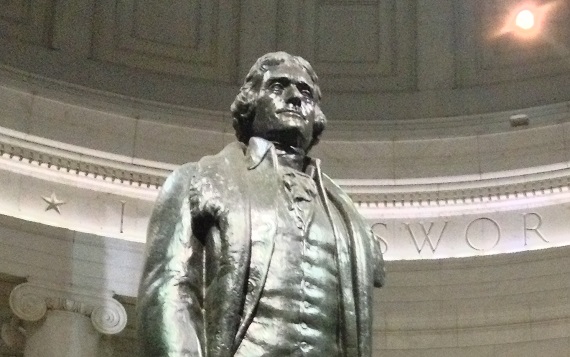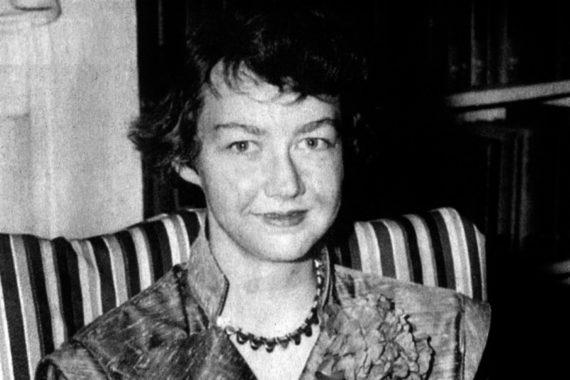Granted that there is a longstanding tradition of promoting the pro-life cause precisely by appealing to Equality and Human Rights. At the same time, it is worth remembering that the actual battles of abortion have had at least as much to do with far less fashionable principles such as federalism, constitutional limits, and states’ rights. Through Roe v. Wade, the United States Supreme Court canceled a Texas law dating to 1857; with Dobbs v. Jackson, the Court simply admitted that, in this matter, it had never possessed lawful authority to override the state of Texas in the first place.
“At the time of Roe, 30 States still prohibited abortion at all stages,” the Dobbs court noted, before going on to observe that Roe “imposed the same highly restrictive regime on the entire Nation, and it effectively struck down the abortion laws of every single State.” In defending a new law restricting abortion, the Court continues, the State of Mississippi’s “primary argument” was “that we should reconsider and overrule Roe and Casey and once again allow each State to regulate abortion as its citizens wish.” The Court’s judgment of this argument? “We hold that Roe and Casey must be overruled.”
So the Dobbs decision should draw attention to a paramount question which has often been obscured by the inherent ghoulishness of abortion itself: Where do the limits of the federal government’s power lie? Even as the struggle over abortion pits against one another two radically opposed conceptions of human life, so too do the Roe and Dobbs decisions reflect two mutually exclusive understandings of the US Constitution. For the typical partisan of Roe believes that the Constitution exists to empower the federal government, more and more, in a never-ending mission of promoting equality and human rights throughout America and the world. To that end, the Constitution bestows upon the federal judiciary an authority trumping that of Congress, as well as of state and local governments – and, ultimately, of parents over their children.
An alternative reading of the Constitution is to see it as a document meant to place very narrow limits upon the federal government’s power. With Dobbs, the Court affirms the limits of its own authority, conceding that its rulings are valid only when “deeply rooted in [American] history and tradition.” Hence the conclusion that “the nine unelected Members of this Court do not possess the constitutional authority to override the democratic process and to decree either a pro-life or a pro-choice abortion policy for all 330 million people in the United States.”
This question of judicial overreach can be traced all the way back to the debates surrounding the ratification of the Constitution itself. In arguing against ratification, for instance, Anti-Federalist writer “Brutus” presciently warned that the courts would interpret the Constitution “not only according to its letter, but according to its spirit and intention; and having this power, they would strongly incline to give it such a construction as to extend the powers of the general government.” Anyone who peruses the debates between the Federalists and Anti-Federalists will be struck by how much the latter feared that the new Constitution would inaugurate consolidated government – a unitary, centralized power capable of imposing itself absolutely upon all the signatories – even as Federalists argued that such fears were groundless. Where both of the two sides of the constitutional debate rejected (or at least pretended to reject) consolidated government, a de facto consolidated government is the very thing which both major political parties today take for granted.
Likewise, in the academic sphere, those who join the current Supreme Court in emphasizing the value of “history and tradition” are liable to be dismissed by followers of Harry Jaffa as “historicists.” Yet the Dobbs Court was guilty not only of preaching “historicism,” but of practicing it. To demonstrate that restrictions upon abortion are indeed consonant with “history and tradition,” the Court cited various anti-abortion state acts throughout American history, with the following 1848 Virginia statute being a prime example:
Any free person who shall administer to any pregnant woman, any medicine, drug or substance whatever, or use or employ any instrument or other means with intent thereby to destroy the child with which such woman may be pregnant, or to produce abortion or miscarriage, and shall thereby destroy such child, or produce such abortion or miscarriage, unless the same shall have been done to preserve the life of such woman, shall be punished, if the death of a quick child be thereby produced, by confinement in the penitentiary, for not less than one nor more than five years, or if the death of a child, not quick, be thereby produced, by confinement in the jail for not less than one nor more than twelve months.
Here are two striking points which would no doubt “trigger” the many Conservatism, Inc. players within the pro-life movement. For one thing, it is undeniable that, in at least one important respect, antebellum Virginia was morally superior to modern-day Massachussetts. For another, it is thanks to “historicism” and genuine federalism, not neoconservatism and American nationalism, that a huge number of unborn lives have been spared over the past several months. Unless we are willing to see American constitutionalism jettisoned entirely – not an impossible scenario, to be sure – we should emphasize that America is made to work a certain way, that the states were never meant to be mere administrative departments in a unitary regime. If mass culture, collectivism, and political consolidation really are connected to the abortion phenomenon, then it is only by reviving an appreciation for local identity, heritage, and authority that we can effectively follow up on Dobbs – or even begin to address the myriad other pathologies afflicting 21st – Century America.


![[Southern] History Matters](https://www.abbevilleinstitute.org/wp-content/uploads/2014/08/US-Constitution.jpg)




Jerry:
Latin and physics? I love that combo!